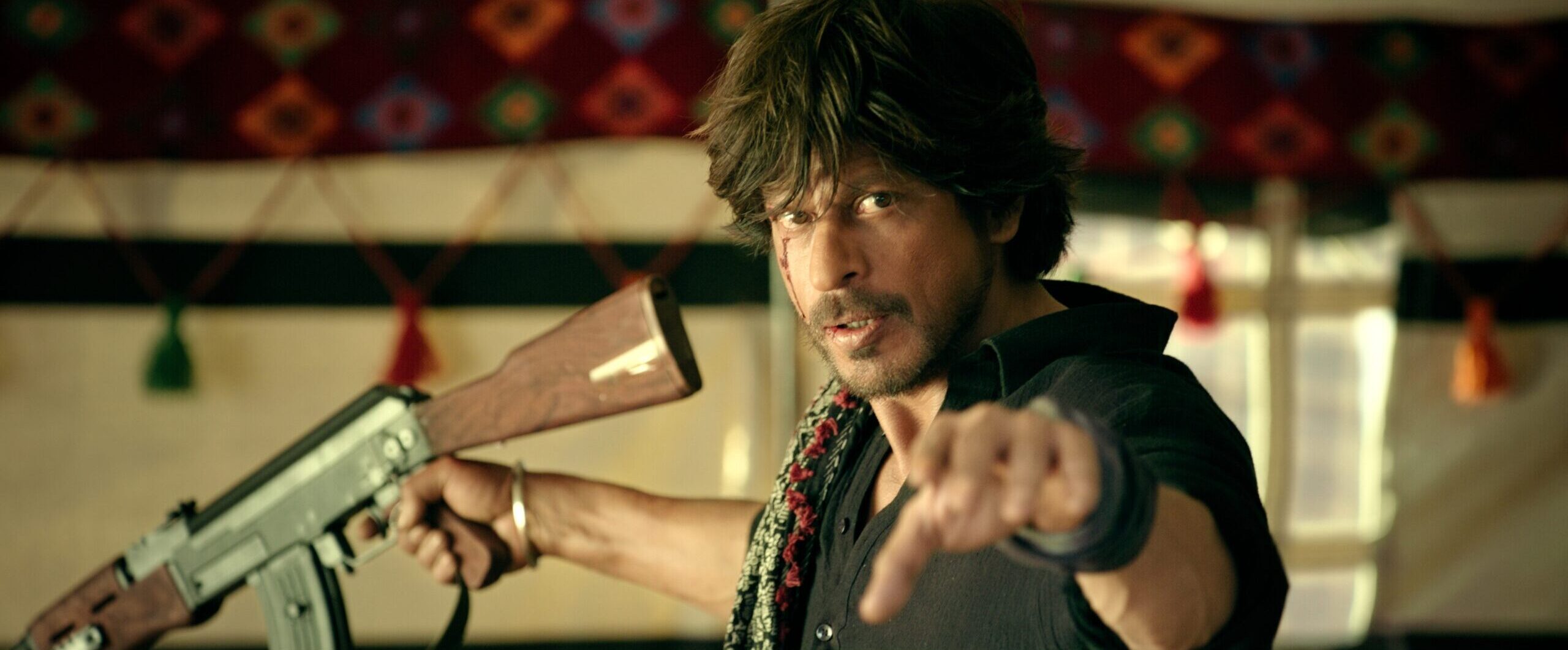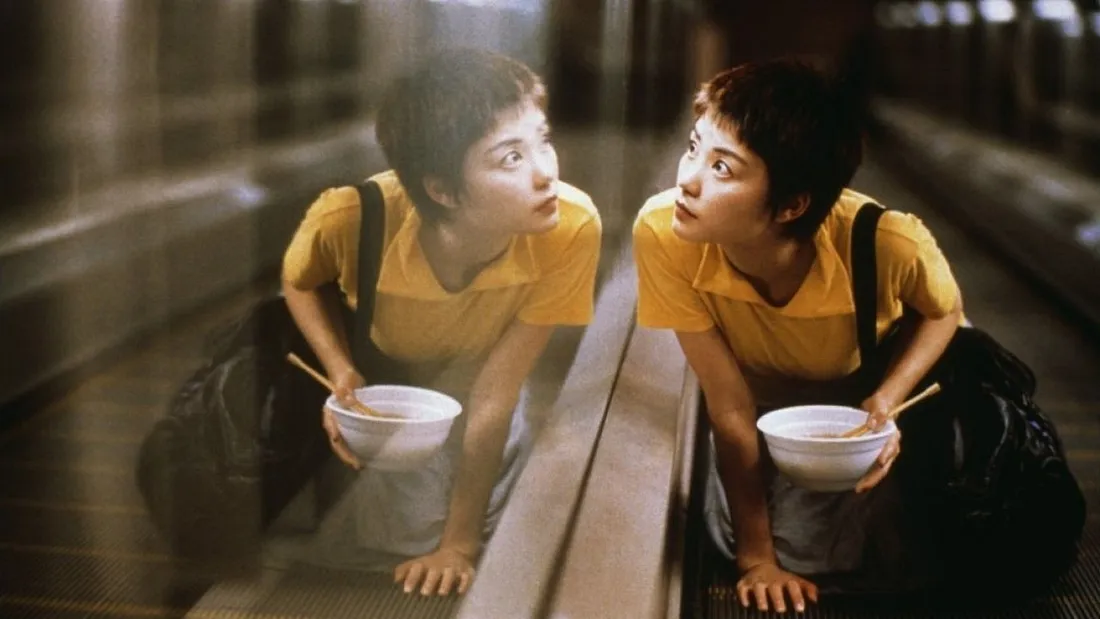Salaar (2023) unfolds as an action-packed drama and an edgy exploration of friendship, portraying the lengths one is willing to go to safeguard those held dear. It draws inspiration from Prashanth Neel’s debut film Ugramm (2014) and opens with a sequence that begins in 1985. Deva (Prabhas) and Vardha (Prithviraj Sukumaran) are inseparable friends who navigate life together, standing steadfast through thick and thin. The camaraderie between them is exemplified when Deva, in a daring act, engages in a fierce wrestling match to reclaim Vardha’s cherished nose ring, the symbol worn by their clan. Vardha reciprocates by rescuing Deva’s mother from peril at the hands of his own father’s henchmen, a courageous deed that prompts him to relinquish a substantial portion of their clan’s territory. Later that fateful night, Deva, accompanied by his mother (Easwari Rao), leaves Khansaar for good, disappearing into the shadows. Fast forward to 2017, and Deva and his mother had found solace in a secluded village, Tinsukia in Assam. Deva toils in the coal mines and is leading a life bereft of violence. His mother gets berserk even if her son holds a plastic knife to cut a birthday cake. The film strategically employs hazy flashbacks, hinting at a significant event that transpired years ago, leading to Deva’s mother imposing a solemn vow upon him—never to wield a weapon again. Simultaneously, the narrative introduces Aadhya Krishnakanth (Shruti Hassan), who has come to India from the USA with a pious motive. As she sets foot outside the airport, her life is imperiled for reasons shrouded in mystery. At the request of her father, she takes shelter in the village under the protection of Deva. She begins to teach English in the school where Deva’s mother teaches too. One day, her location gets detected by her enemies and her life poses a threat. Deva’s mother, recognizing the imminent danger, releases her son from the binding promise. The post-interval segment unfurls through a captivating flashback, revealing how Vardha driven by conflict and impending threats persuades Deva to return to Khansaar and confront his adversaries head-on.
Drawing inspiration from his earlier success in the KGF series, Neel has intricately designed his recent outing to resonate with enthusiasts of mass-action entertainers. Salaar unfolds as a three-hour-long saga that showcases stylized action scenes akin to the director’s previous work. Every aspect of the film, from its conception to execution, is a carefully curated experience for fans who seek the exhilaration that comes with it and is devised to appeal to those who enjoy extravagant and larger-than-life spectacles. Even the plot’s twists and turns are orchestrated to deliver a continuous stream of thrills. The first action scene where Deva beats his opponents to a pulp comes late in the film, teasing our anticipations. It becomes a successful ploy to keep us engaged and invested in the unfolding drama. Even the dialogues are crafted with a commanding resonance, adding a layer of power to the characters’ interactions. Deva does not speak much and lets his actions do all the needful. The visuals, marked by grandeur, contribute to the film’s overall spectacle, enhancing the immersive quality of the viewing experience. The high-flying kicks and explosive confrontations serve as a testament to Neel’s unwavering commitment to providing an unadulterated feast for the senses for audiences who find joy in witnessing their favorite genre unfold in all its grandeur on the silver screen and seek the sheer joy and excitement it delivers.

However, beneath the veneer of glorification, Salaar grapples with challenges that compromise its dramatic coherence and unfolds as a symphony concert orchestrated by the resonant background score of Ravi Basrur. Prashanth Neel‘s ambitious pursuit of elevating his lead actor, Prabhas, to a pedestal of hero worshiping, leaves the audience stranded in the shallows of a narrative devoid of the complexities that breathe life into a truly compelling story. It leans heavily on a unidimensional theme, positioning Deva as an incarnation of God and the universal savior of every soul in distress. This singular focus overshadows the potential for a more nuanced exploration of character dynamics and narrative depth. In a pivotal action scene, the protagonist is even depicted as an incarnation of a deity, further reinforcing the film’s reliance on its sole objective. This overemphasis and preoccupation with glorifying the protagonist compromises the depth and richness that could have elevated the film to a more profound and resonant level.
Moreover, punctuated by excessive acts of violence, Neel often sacrifices clarity for prolonged stretches, relegating the imperative task of making sense of the story to a secondary concern. The post-interval phase thrusts the audience into the tumultuous kingdom of Khansar, introducing a multitude of characters from Mannar, the Shouraangya, and the Ghaniyaar tribes. Most of them are sadists and a disturbing act takes center stage with a gruesome event involving the symbolic act of flying a kite, entwined with the harrowing violation of the honor of young girls. In the blink of an eye, rebel outfits from diverse corners of the world—Russia, Austria, Ukraine, and Serbia—converge to confront the formidable Mannar clan. Amidst this chaotic assembly, it becomes an arduous task to keep pace with the unfolding drama. The female characters, unfortunately, find themselves relegated to roles of perpetual distress, dependent on male protagonists for rescue, with one exception: Radha Rama Mannar (Sriya Reddy), who wields authority amongst formidable opponents but has very little say when major decisions are made. The central conflict, a bloody battle for succession to the throne occupied by Varadha’s father, Raja Mannar becomes exaggerated to the level of endurance. The complexity of this power struggle leaves audiences grappling with an excess of information and sensory stimuli. The filmmaker seems to completely detach himself from the fact that even when cinema is designed for entertainment, it’s essential to use campiness judiciously to cater to popular tastes in a balanced manner.

Prabhas, as Deva, is a powerhouse, seamlessly balancing calm composure with a nuanced understanding of his character’s psyche. When violence erupts, Prabhas embodies Deva’s menacing nature with extreme ferocity. In contrast, Prithviraj Sukumaran, portraying Vardha, takes a measured and deliberate approach to his actions. He refuses to let anger override intellect, adding a layer of sophistication to his character and showcasing a personality grounded in careful consideration rather than impulsive emotions. Shruti Hassan, as Aadhya, appears underutilized, failing to showcase her potential in a less substantial and meaningful role. The limited offering of her character is little beyond moments of helplessness, pleading, and admiration for the protagonist’s action skills. Jagapathi Babu, portraying Raja Mannar, commands the screen with a fierce and compelling presence, effectively living up to the demands of his role. Easwari Rao as Deva’s mother and Sriya Reddy as Radha Rama Mannar bring a commendable and impactful presence. The rest of the cast, which includes Tinnu Anand, Bobby Simha, Ramana Ramachandra Raju, and others, deliver performances that can be described as satisfactory.
Bhuvan Gowda‘s skillful use of a muted color palette characterized by blacks and browns imparts a murky and dystopian atmosphere to Salaar, aligning seamlessly with its thematic elements. His framing of characters is noteworthy, effectively capturing and bringing out their personas on screen. The kinetic editing by Ujwal Kulkarni stands out, contributing to the Salaar’s adrenaline-pumping moments by precisely displaying his grapes over the action and emotional scenes. The strategic use of fade-outs adds a layer of thrill to the action sequences, enhancing the overall thrilling impact. Shivakumar‘s production design successfully creates the bleak and dark world of Khansar with an atmospheric setting that is riveting. Ravi Basrur‘s background score proves to be a potent emotional catalyst, eliciting a visceral response and providing a dynamic backdrop that multiplies the intensity in each scene.
Though Salaar is a technical triumph, a notable deficiency lies in the emotional trajectory of the protagonist, which doesn’t quite reach the depth achieved by Rocky in the KGF series. It succumbs to an overdose of this kitsch aesthetic and falls victim to an obsession with a kind of storytelling that is jarring and loud. The overemphasis on excessive violence, murder, and chaos creates a cacophony that seems to drown out meaningful substance. As a result, it transforms into a glittering but vacuous spectacle, unable to strike a harmony between spectacle and substance. As viewers, we anticipate that the forthcoming installment will offer a more nuanced narrative coherence and delve into intricacies that bring plausible depth to the characterization, elevating the sequel beyond a blatant display of auditory tumult.



